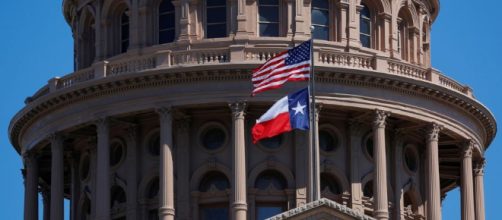A federal appeals court upheld Texas’ Voter Identification Law on Friday, saying that it does not discriminate against black and Hispanic voters.
A divided federal appeals court panel has thrown out a challenge to a revised voter identification law the state of Texas passed last year after an earlier measure ran into legal trouble.
The decision from the U.S. court of appeals for the 5th Circuit will allow Texas to enforce the Voter Id Law called SB 5, passed in 2017. The measure aimed to fix the flaws in an earlier version of the law, SB 14, that had been blocked by federal courts because it discriminated against black and Latino voters.
This was the 2nd major ruling over voters' rights in the United States this week after an Arkansas judge on Thursday blocked that state’s voter ID measure as unconstitutional.
On a 2-against-1 vote, a panel of three judges of the U.S. 5th Circuit Court of Appeals reversed a lower court’s ruling that rejected the state's revisions through Senate Bill 5. The lower court declared that the changes did not absolve Texas lawmakers from responsibility for discriminating against Hispanics and people of color when they introduced what has been called one of the nation’s strictest voter ID laws in 2011.
Voting rights groups have long argued against such voter ID laws, which they describe as discriminatory and intended to suppress voter turnout among minority groups.
A number of Republican-controlled states, however, have sought to implement such laws in recent years, saying that its necessary to preserve the integrity of U.S. elections and prevent voter fraud.
ID or affidavit
The most important change to the Texas law — one that considers firearm licenses as a valid identification method to vote, but not college student IDs, is that voters who do not present a valid photo ID are still allowed to vote as long as they provide a signed affidavit. The dissenting judge agreed with the activists’ claim that the Texas legislature was still acting with discriminatory intent and should be blocked from enforcing the restrictions that keep minorities from voting, fearing that introducing criminal penalties tied to lying on the affidavit could discourage voters from casting the ballot.
Ruling cheered
Texas Attorney General Ken Paxton praised the decision, saying the revised law "removes any burden on voters who cannot obtain a photo ID."
On Twitter, some people defended the ruling, stating that it will help against fraud and illegal immigration.
This is huge for Texas! I’m glad they were able to get Voter ID back into place, especially with Soros and Illegals flooding into Texas. As I said before Texas is the single most important state in the union! Keep Texas red! https://t.co/pR66gs5mAl
— Paul Lee (@PaulLee85) April 27, 2018
This doesn't mean voter ID is dead forever in Arkansas.
In the November election, voters will decide whether to change the state Constitution to bring the voter ID law back.

